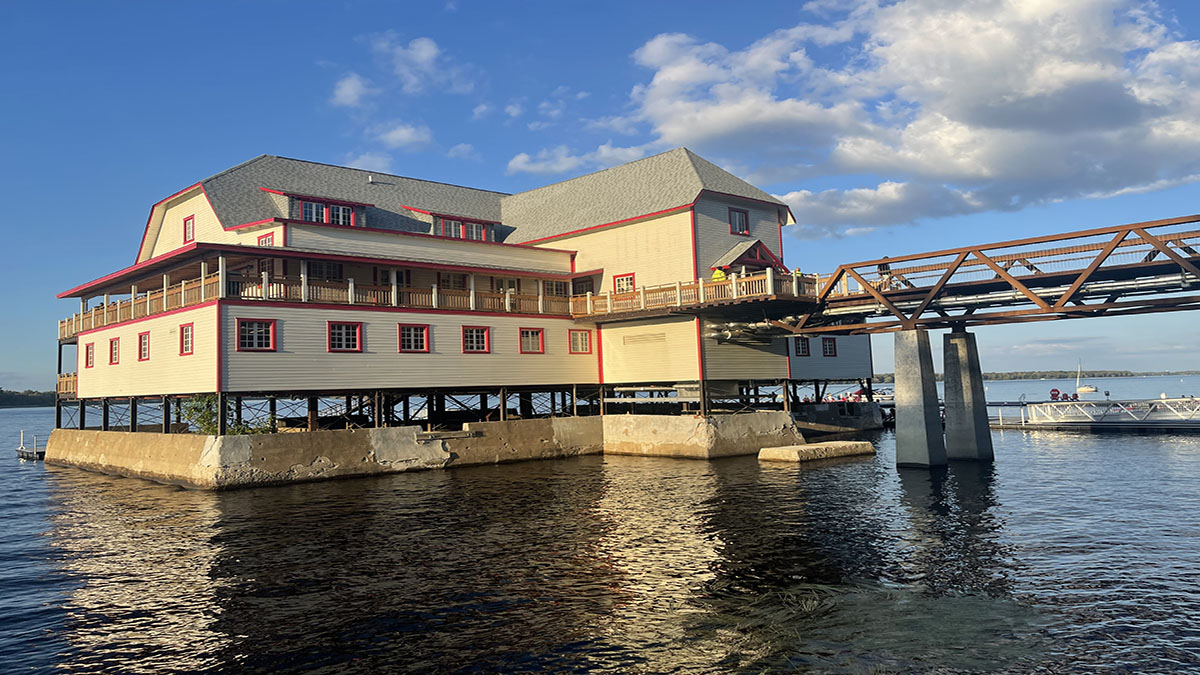On a recent sunny day at the NCC River House, families and friends gathered by the water. Amid the laughter and joy of this idyllic scene, a woman in a wheelchair faced an unexpected challenge: an inaccessible ramp.
For disability advocate John Redins, who witnessed her struggle, the moment was a call to action. So, in September, he carried out an audit of the River House’s accessibility.
Over the past four years, the heritage site on the Ottawa River along the Sir George-Étienne Cartier Parkway has undergone extensive renovations aimed at welcoming visitors throughout the year. Despite the upgrades, Redins says he unearthed several critical accessibility concerns:
- Dock ramp accessibility: Redins pointed out a sharp edge on the ramps leading to the dock, making it impassable for wheelchair users without assistance;
- Swimming area accessibility: There was no dock or lift for the swimming area, preventing individuals with mobile issues from accessing this part of the site;
- Elevator functionality: During the audit, the elevator at the River House was reportedly out of service, rendering the upper floors inaccessible:
- Trail maintenance: Redins expressed concerns about trail upkeep, particularly during adverse weather conditions, which could result in debris or snow build-up, rendering the area impassable to those with mobility challenges.
Jerry Fiori, chair of the Ottawa Disability Coalition, echoed Redins’ concerns, sharing his own experience at the River House. He pointed out that there was limited accessibility parking, leaving him and his wife to park at a lot across the street. “Because I use a power scooter it was OK to take the long ramp path down and up,” he said. “People using a walker would find this too far to walk!”
Fiori also noted the catering area posed challenges for those with mobility aids, with the narrow space making it difficult to manoeuvre. He mentioned accessible washrooms as well. While there is one accessible washroom available, it often gets used as a change room, making it unavailable when needed, he says.
According to the NCC, the River House had about 13,500 visitors in its first week of reopening, July 23. However, Fiori doubts the site will host many disabled patrons. “We were there for about two hours and did not see anyone else with a mobility aid — walker, wheelchair or cane,” he said. “With limited parking nearby, it is unlikely that many persons with disabilities would be able to make use of it.”
Matthew Sonier, a spokesperson for the NCC, acknowledged the absence of a universal access lift in the swimming area and shared plans to install one by next summer. Access to the elevator was restricted because of construction, he said. However, the NCC said it is now functional and open to the public. On the issue of maintenance, Sonier said standard operating procedures were being developed for the site, which included pathway maintenance.
The River House audit reflects a broader challenge in the city, said Redins. “It is common that the older parts of Ottawa have no accessibility standard,” Redins said. “But in the newer parts, you can see it’s quite accessible.” This is despite the city mandating all new construction and revitalizations be in line with the Ottawa Accessibility Design Standards. The NCC has put together an accessibility plan to ensure it meets its responsibilities under the federal Accessible Canada Act.
AccessNow is an app and website that provides real-time accessibility information for buildings worldwide. Two summers ago, Redins worked for the company that developed the software, during which he used the app to document and upload accessibility data about buildings across Ottawa.
Redins notes some businesses in older areas have taken matters into their own hands by building ramps. However, this well-intentioned effort has its limitations as doors are often too small to fit most mobility aids. In Redins’ words, “a new way of thinking of how everybody will have accessibility” is needed to bridge this gap.
The River House’s swimming area closed Oct. 1, while food and beverage services will continue from 9 a.m. to 8 p.m. until Oct. 31. Service hours will be reduced to 10 a.m. to 2 p.m. after this date, but will remain open year-round.




